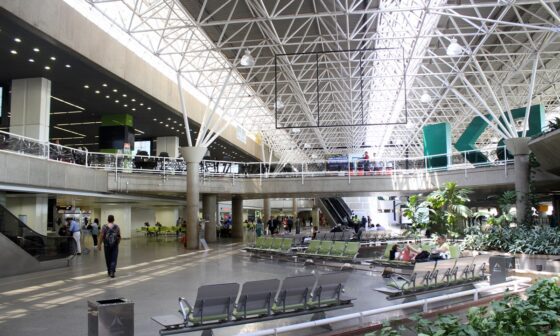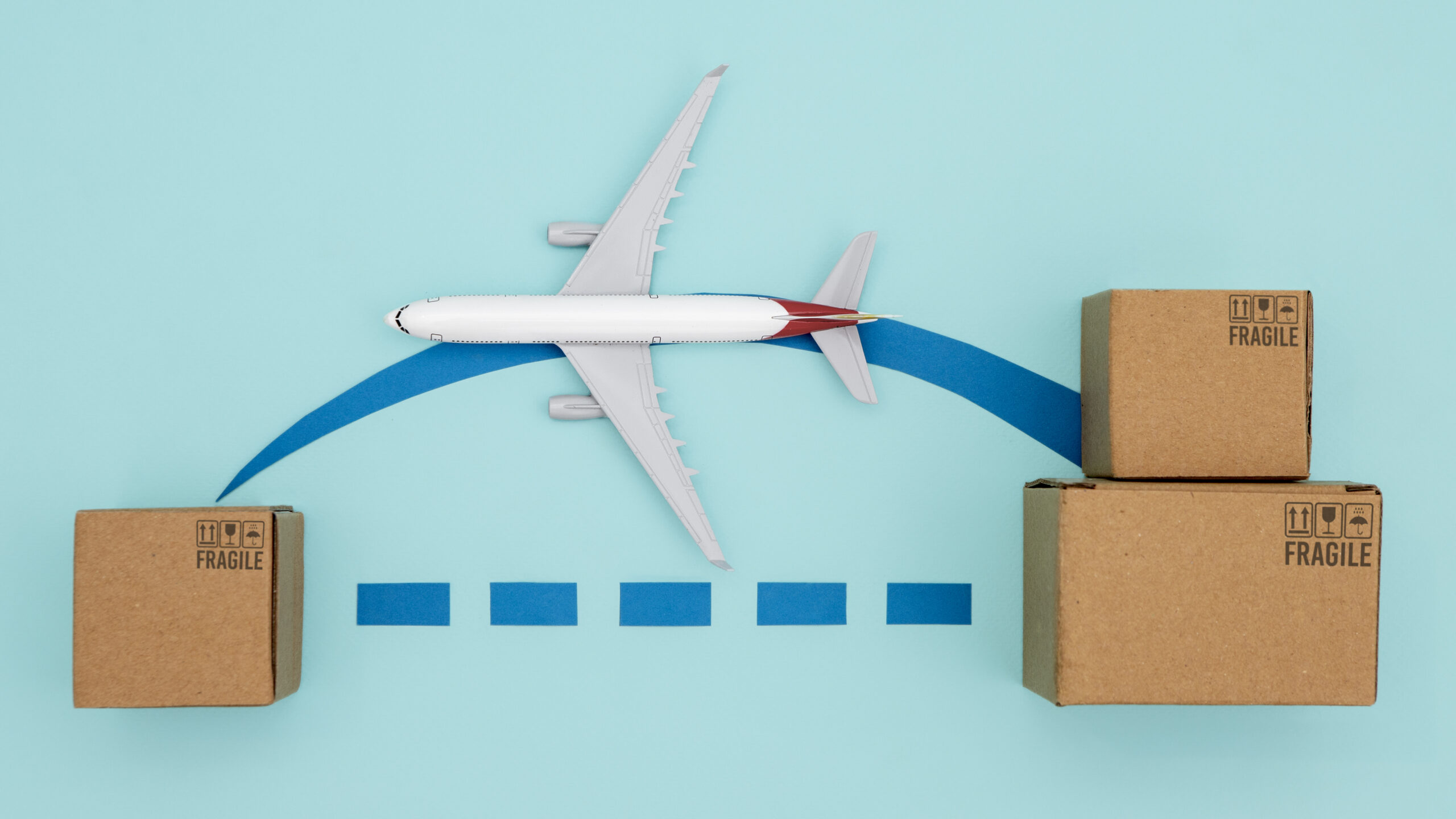Are you aware of all the benefits provided to companies participating in the Remessa Conforme Program? This plan, formalized by the Ministry of Finance and Brazilian Customs, will come into effect starting from August 1st, with the aim of establishing a faster and more cost-effective customs treatment for organizations that voluntarily comply with the criteria defined in Normative Instruction 2146/2023.
Although it is not mandatory, by joining the Brazilian Customs program, logistics operators and e-commerce companies will be able to import or export goods to Brazil with greater ease, going through an exclusive inspection channel with fast clearance, among other benefits. However, it will be necessary to submit some information about international shipments in advance.
Sinerlog, a technology company specializing in cross-border trade, is the only company in the world already authorized to issue the Remessa Conforme seal, accrediting marketplaces, brands, and any e-commerce operating under the model of importing foreign products to Brazil.
Continue reading to learn how this program will work in practice, its benefits, how to integrate, and what market disadvantages it brings to non-participating companies
What benefits will be granted to companies that join the Remessa Conforme Program?
Companies participating in the Remessa Conforme Program will have many more conveniences when importing products into Brazil. They include:
- Early nationalization of goods.
- Priority treatment of shipments by relevant authorities.
- Company disclosure on the Brazilian Federal Customs website.
- Federal tax exemption for shipments up to $50 USD.
- Unified state tax rate of 17% (ICMS) for imported goods.
Currently, when a foreign object arrives in Brazil, it must go through customs inspection, involving several stages. The shipment is received in a customs enclosure along with an export declaration containing various information that must be registered in the Brazilian Federal Customs system.
Subsequently, the goods may be directed to different evaluation channels, each involving a type of assessment by the tax auditor. This process can be time-consuming and cause delays in delivering the goods to the end customer.
For companies participating in the Remessa Conforme Program, this treatment is expedited because the Brazilian Federal Customs and other relevant authorities have access to the previously sent product information. Thus, upon landing in the country, shipments receive the green light to proceed quickly to their final destination.
How will imports work for companies that do not join Remessa Conforme?
The process for handling shipments from companies not registered in the Remessa Conforme Program will remain traditional. The order will arrive at the airport and be unloaded without prior information for the Brazilian Federal
Customs, facing a long inspection queue.
According to information from the Ministry of Finance, over 40 trucks per day transport packages from Guarulhos/SP airport to the central Correios in Curitiba/PR.
Upon arrival in Curitiba, the goods undergo sorting, import declaration registration with the Brazilian Federal Customs, and payment of federal taxes by consumers. Only after the taxes are paid are the packages released for delivery to the final recipient.
Additionally, there will be no benefit of federal tax exemption for shipments under $50 USD. Therefore, companies not registered in the Remessa Conforme Program will have to bear additional taxes:
- Federal tax, corresponding to 60% of the purchase value.
- ICMS, corresponding to 17% of the total value, including previous taxation
What is required to participate in the Remessa Conforme program?
To enjoy the benefits of Remessa Conforme, participating companies need to fulfill a series of requirements by providing prior information that must be properly conveyed to all parties involved in the process of sending foreign goods to Brazil, including transporters, which adds complexity to the process.
The required information pertains to the shipment, the goods, the sender, and the recipient. Sinerlog is currently the only company with the technology to meet this demand, helping companies to easily comply with Remessa Conforme through its Cross Commerce as a Service (C²aaS) platform, which integrates with the Brazilian Customs system.
This allows for the secure provision of all the data requested by the authorities, ensuring a fast customs clearance and the benefit of federal tax exemption.
In addition to connecting with local authorities, our Cross Border platform also enables integration with authorities in the USA and Europe.
See below the requirements of the Brazilian Customs (RFB) for program participants
Identification
- Specify whether the shipment is express or postal;
- Registration number of the courier company or postal in the National Registry of Legal Entities (CNPJ);
- Identification number of the operator and declarant in the registries of the Special Secretariat of the Brazilian Customs (RFB);
- RFB unit with customs jurisdiction over the customs area where the courier company or postal will present the shipment for customs clearance;
- Country code of origin of the shipment subject to customs clearance for importation;
- Code of the e-commerce platform account responsible for the sale of goods in the shipment to the courier company or postal, if applicable;
- Full name of the e-commerce platform responsible for the sale of the goods in the shipment;
- Code of the non-designated operator’s account responsible for the exchange of goods in the shipment with the postal, if applicable;
- Full name of the non-designated operator responsible for the exchange of goods in the shipment with the postal, if applicable;
- Provisioned value related to import duty;
- Provisioned value related to the Tax on Operations relating to the Circulation of Goods and the Provision of Services of Interstate, Intermunicipal, and Communication (ICMS).
Commodity
- Indicate the taxation regime applied to the item of goods;
- Value of the item of goods in the shipment;
- Currency used in the transaction of the item of goods in the shipment;
- Statistical unit of measurement for the item of goods;
- Quantity of the item of goods expressed in the declared statistical unit;
- Full description of the item of goods, allowing for its proper identification and characterization;
- Net weight of the item of goods, expressed in kilograms with two decimal places of accuracy;
- Classification of the item of goods according to the Common Nomenclature of the Mercosur (NCM);
- Indication of inspection of the shipment by other federal public administration bodies or entities responsible for specific controls in foreign trade, if applicable.
Shipment
- General description of the shipments or items in the shipment;
- Total gross weight of the shipment;
- Values of the freight and insurance contracted for the transport of the shipment;
- Currency used in the contracting of the freight and insurance of the shipment;
- Payment method – Identify whether the freight is included in the value of the shipments (prepaid) or if the freight is not included in the value of the shipments (collect);
- Marker to identify whether the shipments in the shipment will be commercialized after their entry into the country;
- Total quantity of volumes composing the shipment;
- Free text field for providing the RFB with other relevant information about the declaration or customs clearance that is considered important by the courier company, postal, or recipient, not included in specific fields.
Recipient
- Code of the recipient’s account with the courier company or postal, if applicable;
- Identification of the recipient by providing the taxpayer identification number (CNPJ) for legal entities or the individual taxpayer identification number (CPF) or passport number for individuals;
- Identification of the recipient type: individual or legal entity;
- Business name or full name of the recipient;
- Complete address of the recipient;
- Additional address information, such as landmarks, apartment or house number, among others, if applicable;
- Municipality code of the recipient’s address;
- Postal code of the recipient’s address, if applicable;
- Abbreviation of the recipient’s address federal unit;
- Country code of the recipient’s address.
For these recipient information, our platform already generates a special label, using our own system, which allows all parties involved in the shipment process to track the cargo in real-time through all stages, from first to last mile.
Sender
- Code of the sender’s account with the courier company or postal, if applicable;
- Identification number of the sender, if applicable;
- Identification of the sender type: individual or legal entity;
- Business name or full name of the sender;
- Complete address of the sender;
- Additional address information, such as landmarks, apartment or house number, among others, if applicable;
- Municipality code of the sender’s address;
- Postal code of the sender’s address, if applicable;
- Abbreviation of the sender’s address federal unit;
- Country code of the sender’s address.
Especially for those who have marketplaces, this information can be challenging to control. To ensure the security and authenticity of cross-border transactions, it is possible to obtain Vendors Verification, a certification seal that confirms that you or your associated sellers are certified and secure.
In partnership with Société Générale de Surveillance (SGS), the world leader in certification, Sinerlog provides the certification seal for sellers, recognizing and validating the integrity of the selling company.
This is the first step to enable the organization to issue the e-Invoice, a global electronic invoice that identifies all parties involved in the transaction and consolidates all the data into a single document signed by blockchain, a highly reliable technology that allows for transparent data sharing.
It is worth noting that the e-Invoice serves as legal proof of the international transaction and the agreement between the buyer and the seller, protecting all parties from potential fraud.
Comply with Remessa Conforme with Sinerlog!
Sinerlog’s Cross Commerce platform is the solution for companies that want to fully comply with the Remessa Conforme program and enjoy its benefits in a simple and uncomplicated way, without the risk of having shipments blocked by customs.
We are the only company in the world authorized by Brazilian Customs to approve companies that import products to Brazil. Our solutions integrate all the actors involved in the process of sending foreign goods to Brazil, contributing to the security of global e-commerce. In addition to the mentioned solutions, we offer:
- Cross Border Insurance, protecting your company from potential losses;
- Intelligence and data analysis for defining the best delivery routes, portfolio improvements, and fraud detection;
- Full engagement with all import and export services in Brazil, including Correios Packet and all private couriers;
- Cross Commerce API and integration hub, allowing connectivity for any client, platform, marketplace, or partner.
Get in touch with our sales team and align your business with the Remessa Conforme program using Sinerlog, the only qualified company in the global market!








